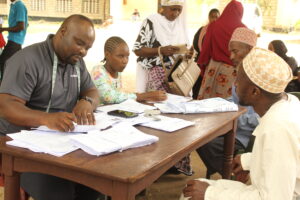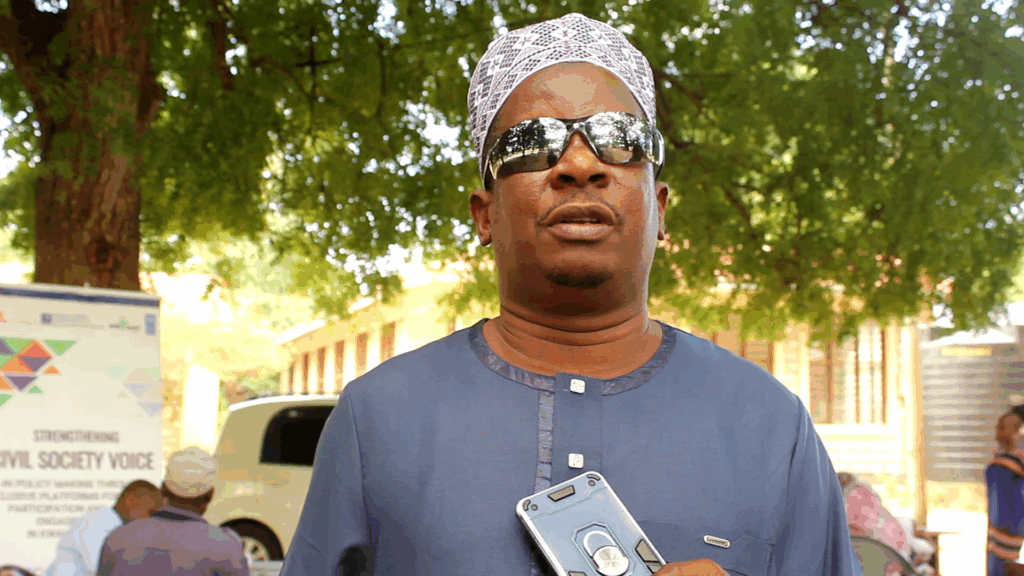BY SHABAN OMAR
A non-governmental organization, Muslim Women Advancement of Rights and Protection (MWARP), in partnership with the Department of Health in Kwale County, has officially launched a registration exercise for persons with disabilities (PWDs) in the region.
The main objective of the exercise is to gather accurate data on the number and needs of people living with disabilities.
The program seeks to enable both the national and county government to offer targeted support through policies, budgeting, and development initiatives that address their unique challenges.
The initiative comes amid rising concerns that many PWDs have long been sidelined in national development efforts.
The exercise is being conducted across all wards in Kwale County and involves door-to-door registration, community forums, and collaboration with grassroots leaders.
Speaking during the registration event at Tiwi Sokoni in Matuga sub-county, MWARP County project coordinator, Mwalimu Ali, said the data will inform strong policy formulation and help the government adopt inclusive planning strategies that take into account the needs of people with disabilities.
According to Ali the registration program is about visibility, inclusion, and justice.
“The exercise comprises of needs assessment and proper plans for PWDs since they have for years decried neglection, not because they don’t deserve support, but because they are often invisible in official records,” said Ali.
The registration program comes against the backdrop of a recent move by the national government to nullify all existing disability cards and shift to disability certificates in a bid to clean up the system and identify genuine beneficiaries through fresh data collection.
According to Ali the directive left many persons with disabilities in a state of uncertainty, especially those who depended on the cards to access government services and benefits such as medical cover, tax exemptions, and assistive devices.
The officer said the fresh registration spearheaded by MWARP and the Kwale County Government is, therefore, a timely intervention that aligns with the national effort to build a reliable and verifiable database.
Ali added that the lack of reliable data has often led to exclusion of PWDs in key development programs such as health services, education, infrastructure, and social protection.
He said the exercise will not only help streamline identification processes but also ensure that only deserving individuals benefit from state and donor-funded support.
“We are aware that the national government is revisiting its disability database. That makes our work here even more critical. We are building from the grassroots capturing, real needs, and real people since PWDs are being assessed here but doctors,” he said.
He noted that the registration exercise is also aimed at easing the burden on persons with disabilities, many of whom are often forced to travel long distances sometimes on foot for medical assessments and official registration, a process that is both physically and financially draining for most.
Ali emphasized the need to mainstream disability issues in all sectors.
He acknowledged the fact that many PWDs in rural areas face serious mobility and financial challenges and bringing the registration services closer to them, they are not just collecting data but restoring dignity and making the process accessible to everyone.
The Mwarp County Coordinator urged residents not to fear the process, assuring them that all information collected will be handled with confidentiality and used solely for planning and service delivery purposes.
Ali also called on local administrators and village elders to support the exercise and assist in reaching those with severe or hidden disabilities who may not be able to present themselves physically for registration.
Occupational therapist at Kwale County Hospital, Erick Abong’o, said the registration exercise has attracted a large number of residents, with a significant number presenting eye-related complications.
He noted that many of the cases stem from poor health practices and delayed diagnosis of elevated eye pressure, commonly associated with glaucoma which, if left untreated, can lead to permanent blindness.
“We are seeing many people coming in with preventable conditions. Unfortunately, due to lack of awareness and regular medical checkups, these issues are only discovered when it’s already too late,” said Abong’o.

He urged residents to embrace routine health screenings to catch medical issues early and prevent them from progressing into long-term disabilities.
Abong’o also called for more outreach and community-based programs, saying that many people living with undiagnosed conditions are still out of reach.
He said sustained health assessment partnerships can assist to identify people who can be referred for treatment and potentially saved from permanent disability since many others are yet to be reached.
A physically impaired resident Saum Mohamed welcomed the initiative, describing it as a significant step toward breaking down the barriers that continue to deny persons with disabilities equal opportunities.
She expressed optimism that the PWD registration program would amplify the voices of people like her and ensure they are heard by policymakers.
“We are not asking for sympathy or favors we are demanding inclusion. This process gives us hope that we will finally be part of the national development agenda and benefit from government empowerment programs tailored to our needs,” she said.
Mohamed added that for too long, people with disabilities have been left behind due to lack of proper data and representation, but initiatives like this mark the beginning of meaningful change.


